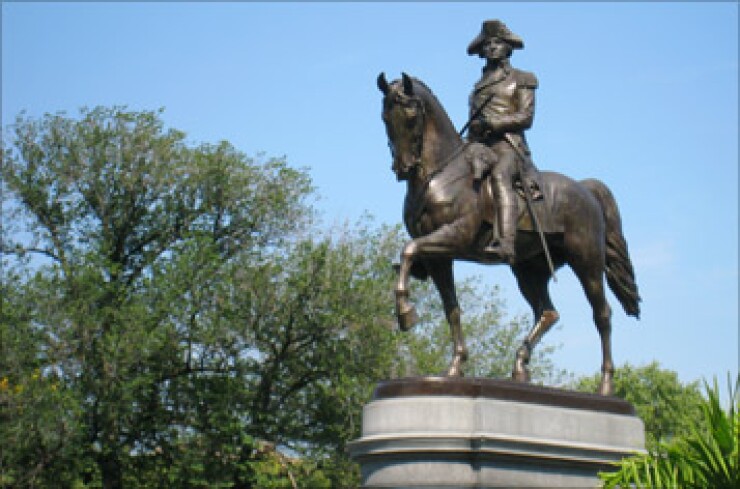It is altogether appropriate that we celebrate two of our greatest presidents during the beginning of tax season. Both George Washington and Abraham Lincoln had a hand in fashioning the structure and enforcement of tax as we know it.
Lincoln, of course, needed an income tax to help pay for the Civil War. And Washinton, who made his bones fighting the French and Indians as a British soldier when he was a youth, took up arms again when some farmers in Pennsylvania refused to pay tax on the whiskey they distilled. Hence, the Whiskey Rebellion, which lasted from 1791 until 1794.
The excise tax on distilled spirits, dubbed the "whiskey tax" by the western farmers who objected to it, was the first domestic product subject to tax by the newly formed federal government. At the time farmers on the western frontier routinely fermented their excess grain, including barley, corn, rye and wheat, to make whiskey. Some were Revolutionary War veterans who thought they were fighting for a similar cause as the Revolutionary War — to prohibit taxation without representation. But the tax was intended to help pay the war debts of the new country, and in acting to put down the rebellion Washington established the precedent that the federal government was sovereign in its ability to tax, and to enforce the payment of federal taxes.
After a number of unsuccessful attempts to collect the tax, an army was raised, composed of militias supplied by the governors of Maryland, New Jersey, Pennsylvania and Virginia. Washington headed the force of nearly 13,000 men. The army succeeded in intimidating the farmers, who left the area and went home before they arrived. A number of arrests were made, but most of the rebels were later pardoned or acquitted. Although the general feeling in the country was that the action was successful, the tax continued to be difficult to collect.

For most of the next 70 years, the national government relied on tariffs to supply its monetary needs. In fact, author Herman Melville, who became an early customs agent, was born on Pearl Street in New York City, just around the corner from Accounting Today's offices on State Street — and just south of the U.S. Customs House.
According to the Internal Revenue Service, Abraham Lincoln signed the law creating the nation's first income tax in 1862 to help pay for the expenses of the Civil War. It levied a 3% tax on income between $600 and $10,000, and a 5% tax on income over $10,000.
The income tax was repealed in 1872, revived in 1894, but ruled unconstitutional in 1895 by the Supreme Court on the grounds that it was a direct tax and not apportioned among the states on the basis of population. The language limiting direct tax was placed in the Constitution to avoid situations where there could be taxes imposed on slavery, since the southern colonies were concerned that the power to tax could be used to tax slavery out of existence.
In 1913, as the threat of war loomed, Wyoming became the 36th and last state needed to ratify the 16th Amendment that would give the government the power to tax income without apportioning the tax among the states. The stage was now set for development of the modern income tax.
So both Presidents Washington and Lincoln played key roles in the history of taxation in the United States. And the Boston Tea Party, which was successful in igniting the Revolutionary War, was not so successful in removing the tariff on tea — the federal government still imposes tariffs on imported tea.





